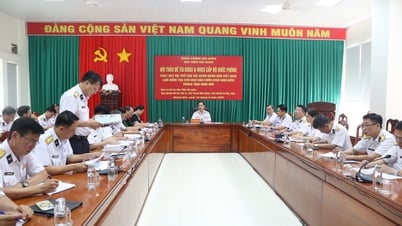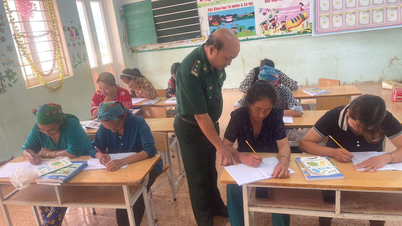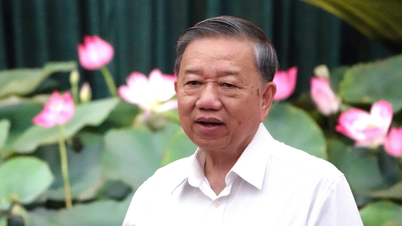 |
| Community-oriented activities of the Youth Union of Hue Newspaper today |
Let me start this story with the Youth Law, a law that originally aspired to unleash the potential of young people, but after 4 years of implementation, many of its provisions have become obstacles instead of motivations. For example, the seemingly simple regulation on the age of youth “16 to 30 years old” has unintentionally blocked the opportunity to access policies for millions of young people who start their careers late. Why is a bachelor who completed his master’s degree at the age of 31 no longer considered a young person to receive support for a start-up loan?
Not only is the concept stuck, the law also lacks implementation tools. Ten groups of policies for youth are listed, but lack a specific action program and a guaranteed budget. “Digital transformation” or “international integration” are keywords of the times, but in the Youth Law 2020, they are just slogans, without specific provisions, without clear implementation responsibilities, and of course, without a monitoring mechanism.
This deficiency not only weakens the effectiveness of the law, but also makes youth policies a mere formality. In fact, young people have been contributing in all areas, from volunteering on remote islands, to urban innovation, to starting businesses in rural areas, but policies have not kept up. So is it possible that the law has fallen behind the very people it is supposed to support?
A similar situation is also repeated in another law: the Law on Mutual Legal Assistance in Civil Matters. In the context of globalization, tens of thousands of civil cases with foreign elements need to be handled every year. However, the current law, issued since 2007, no longer meets the new requirements. The draft amendment proposed at this session still has many shortcomings, especially the omission of the principle of “reciprocity” - which is the foundation for handling requests with countries that do not have bilateral agreements.
The lack of clear regulations on processing time, lack of sanctions for late acts, and lack of allocation of implementation resources are causing judicial assistance activities to fall into a state of “old wine in new bottles”. The law not only needs to be amended to comply with international law, but also to handle legal situations between Vietnamese people and overseas Vietnamese.
In a discussion, Chairman of the Hue City Bar Association Nguyen Van Phuoc said that the system of enforcement agencies, from the court to the request receiving agency, is overloaded. “Why not legalize the role of bailiffs, postal workers, and social organizations in delivering documents? Why do we still try to push all the responsibility to one place, while the modern judicial model is moving towards decentralization and controlled socialization?”, Mr. Phuoc said.
On a more fundamental issue, no matter how good a law is, if there are no people to implement it, it is just a formality. That is the reality that delegate Nguyen Thanh Hai ( National Assembly Delegation of Hue City) frankly stated in a discussion session in the group: "Assigning responsibility without people to implement it is just a slogan."
It is impossible to simply amend the law without restructuring the enforcement apparatus. It is impossible to streamline the apparatus and then assign more work. And it is even more impossible to leave responsibility to the grassroots without equipping them with people, tools and coordination mechanisms. The stagnation lies in the very way the current law enforcement system is organized and operated; something that no single law can solve without a comprehensive view.
It is worrying that the phenomenon of “laws on paper - life on the fringes” is no longer unique. We build and amend laws quite quickly, but the implementation of laws is very slow. Laws are made in the meeting room, but must live in real life, where each passing day brings another incident, another request, another right that needs to be protected.
If we only see the law as a legislative product, and not as a tool for running the country, then all efforts will only stop at... creating more paperwork. The law is the pillar of order, the tool to protect the people, the bridge between commitment and action.
To do so, each draft law must be examined from practice. Each provision must be linked to an implementation mechanism. And the individuals advising on the drafting of the law must put themselves in the position of the implementer, the affected person and the supervisor. Because a law that cannot be enforced is no longer a law - but just an unfulfilled promise.
Source: https://huengaynay.vn/chinh-tri-xa-hoi/phap-luat-cuoc-song/dung-de-thuc-tien-phai-cho-chinh-sach-154626.html

































































































Comment (0)